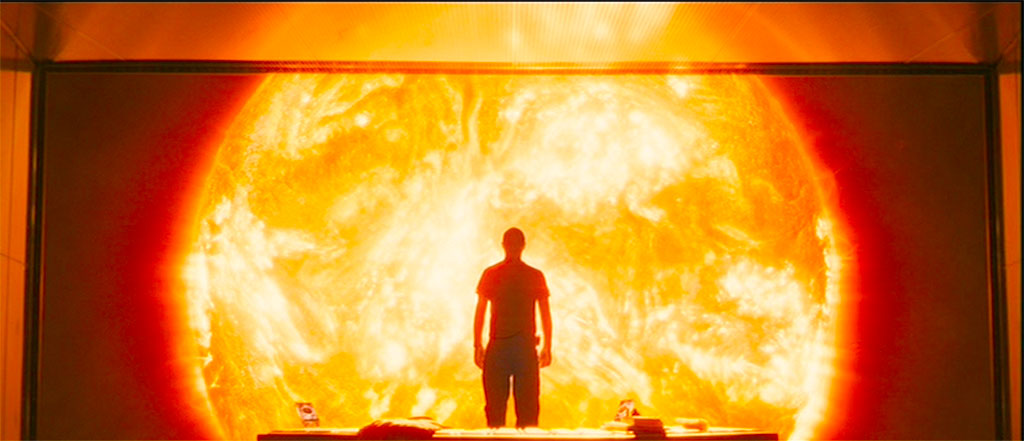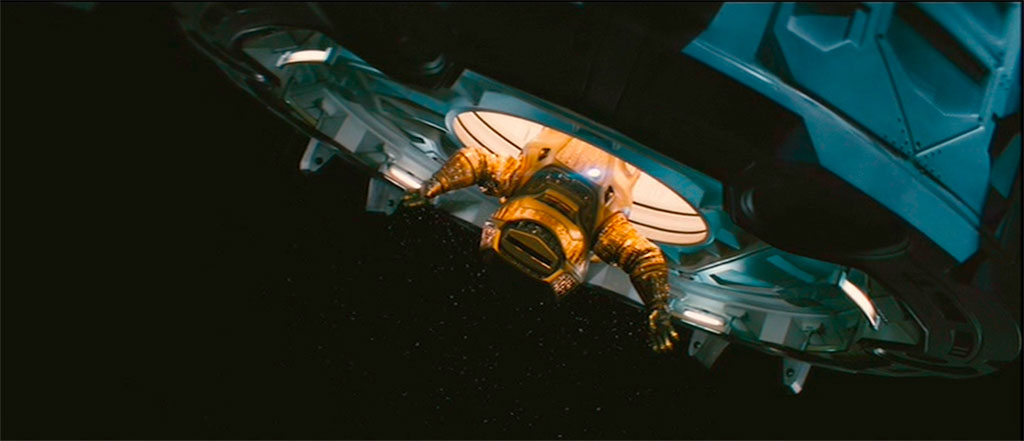Okay, Portal 2! What could be said about Portal 2 that wouldn’t already be
known by anyone who stumbles upon this blog?
Portal 2 is amazing? That’s a given since this is a product of Valve we are
talking about here. Valve just does a very good job on it’s games and Portal 2
is no different. This is a product that has been polished until not one little
error remained. Every line of dialog is a pleasant suprise, every puzzle an
innovative joy and I am only sad that it is so short.
For those who may have been laying beneath a rock – Portal 2 is a
first-person puzzle game built using Valve’s Source engine, that is the same
engine responsible for the likes of Team Fortress, Left 4 Dead, and
Half-Life 2. Except instead of focusing on run-and-gun gameplay, Portal uses
the first-person perspective for an entirely different take. Your gun shoots
portals. Left click and it sets an entrance on a wall. Right click anywhere else
and you create a doorway that will take you from one space to the next.
It’s like playing in an M.C. Escher painting and the challenge is simply being
able to visualize the problem of moving between point A and point B. At first
this is rather simple. Shoot a portal on a wall, put another one somewhere else
and hop through. But the puzzles become increasingly challenging as the game
progresses requiring a great deal of creativity upon the player’s part to simply
navigate the levels.
And as a companion to your trials you get a collection of some of the most
delightful, twisted characters that I have seen in a game before: GlaDOS,
Wheatley, and Cave Johnson exist to torment, mock, and serve up a kind of
science-experiment-gone-wrong scenario as Chell (our protagonist) delves into
the bowels of Aperture Science to uncover where it all began.
If I am beaming about the game it is because it is just that much fun. It has
been a long while since I hit a game that I just could not put down and Portal
2 is definitely hard to put down.
 I
came upon the film Sunshine by way of the exemplar Moon. The latter being
perhaps one of the best instances of hard science fiction that we have seen in
theatres since 2001 A Space Odyssey. Sunshine, while a very good film, cannot
live up to Moon simply because of some very basic plotting issues. Nevertheless,
it is a very interesting science fiction flick.
I
came upon the film Sunshine by way of the exemplar Moon. The latter being
perhaps one of the best instances of hard science fiction that we have seen in
theatres since 2001 A Space Odyssey. Sunshine, while a very good film, cannot
live up to Moon simply because of some very basic plotting issues. Nevertheless,
it is a very interesting science fiction flick.
Sunshine works on the premise that in fifty-some years the sun’s light has begun
to dim plunging the earth into an eternal winter. In order to revive the fires
of the sun, Icarus was sent to detonate a payload with “the mass of Manhattan”
into the sun’s surface. This mission, for unknown reasons failed. The film
begins following the second mission (Icarus II) as it retraces the steps of the
Icarus I in an attempt to follow up on the same mission.
This is decidedly a psychological film — one that draws upon many past science
fiction themes of the lonesomeness and vastness of space and how this conveys
the minuteness of humanity in the cosmos. It is particularly interesting how
involved the main cast gets into the sheer importance of their mission and the
willingness to throw everything away for their mission. That said, they are very
human characters, not the machismo heroes of the action-suspense genre we often
see out of Hollywood.
The sun, our antagonist, plays so many roles for our heroes as they address it
both as a villain who threatens the ship and with a kind of spiritual reverence
held by various pagan sun gods.
The very name Icarus seems to very important to understanding the film. In the
old Greek myth, Icarus is the son of Daedalus the inventor. The two are
imprisoned onCrete and in a stroke of genius Daedalus constructs wings for the
two to escape the island by flying through the heavens. Daedalus warns Icarus
that the wings are fragile and made of wax which will melt if he flies two close
to the sun. Nevertheless, Icarus is too taken up with the excitement of flight
and flies higher and higher until his wings melt and he plummets into the sea.
Herein we can see the fate of Icarus the ship — a work of technological
achievement sent on a mission to visit Apollo himself. In flying so close to the
sun, it chances total destruction by it’s firing furnace and only by a massive
aspis-styled that reflects the sun’s light.
Returning the mythical elements, the crew seem to be in awe of the sun. They
spend hours watching it’s furnace glow, talk reverently about it, and dream
nightmarish dreams about it’s flames.

The only issue with Sunshine? Besides introducing the ridiculous cliché of an
accidental oxygen shortage, the third act forgets who it’s antagonist is. The
sun, such a perfect villain for a man-vs-nature plot is supplanted by the mad
captain of the Icarus I who boards the ship and turns an otherwise amazing film
into a run of the mill slasher flick. The captain, burnt by the sun’s rays, and
having lived alone aboard the Icarus I for seven years believes the sun that the
sun is God and that it has commanded him to abandon the mission.
While I can appreciate the sun-god motif in the film and the interesting
questions that Sunshine brings to the table about how we have related to our
star over the centuries — the rabid fundamentalist captain is out of place in
this film. He suddenly interrupts our story and transforms it into a battle
between science and fundamentalism or man-vs-man which is not altogether what we
have been promised in the first two acts.
Indeed, the violence that the deprived captain inflicts upon the crew is a
merger of horror into an otherwise fulfilling film. I do enjoy the occasional
cerebral horror film. However, in Sunshine I was not expecting a razor-blade
wielding maniac to suddenly appear and displace the sun from it’s dominant role
of antagonizing our heroes and I do not think his addition adds anything to the
film other than to pad it out an extra twenty minutes.
Despite the plotting flaws, Sunshine is an excellent example of how cinematic
science fiction can rise above the empty plots ofHollywood action-suspense
flicks into truly masterful pieces that explore our relationships with being. I
highly recommend watching it.


 I
came upon the film Sunshine by way of the exemplar Moon. The latter being
perhaps one of the best instances of hard science fiction that we have seen in
theatres since 2001 A Space Odyssey. Sunshine, while a very good film, cannot
live up to Moon simply because of some very basic plotting issues. Nevertheless,
it is a very interesting science fiction flick.
I
came upon the film Sunshine by way of the exemplar Moon. The latter being
perhaps one of the best instances of hard science fiction that we have seen in
theatres since 2001 A Space Odyssey. Sunshine, while a very good film, cannot
live up to Moon simply because of some very basic plotting issues. Nevertheless,
it is a very interesting science fiction flick.